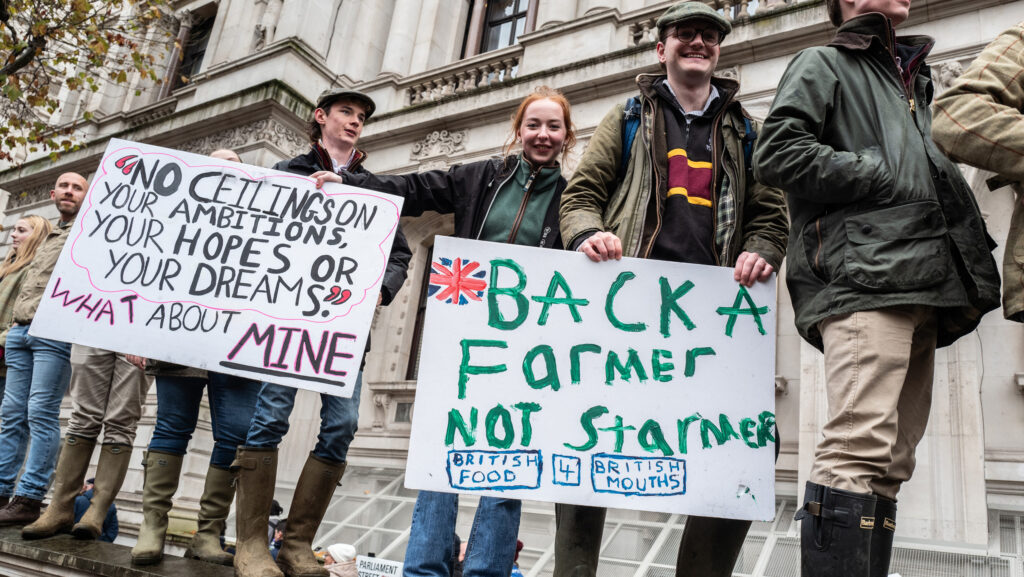Farmers and wider industry unite to challenge IHT plans
 © Phil Weedon
© Phil Weedon The farmer organisers of last month’s London Farming Rally are extending their campaign against the government’s proposed changes to inheritance tax unveiled in the Autumn Budget.
They are planning a meeting at a major London theatre on Monday 16 December, aiming to unite the farming sector and the broader business community in opposition to the reforms.
The planned meeting is expected to bring together farmers, industry leaders and key stakeholders to address concerns over the impact of the government’s tax proposals.
See also: Farmers Weekly Podcast Ep 231: London ‘farm tax’ protest special
Organisers argue that changes to agricultural property relief (APR) and business property relief (BPR) could threaten the viability of family farms by increasing the financial burden on inheritance and transfers of agricultural property.
The Autumn Budget’s announcements have been widely criticised for failing to consider the unique challenges faced by the farming sector, including its reliance on intergenerational succession.
Speaking about the initiative, rally representatives said the meeting was part of a broader strategy to galvanise support across industries that rely on similar relief measures.
“This isn’t just about farmers; these tax changes affect the backbone of Britain’s rural and business economies,” said Merseyside arable farmer Olly Harrison, one of five farmers who organised the London rally.
“By collaborating with the wider business community, we’re sending a strong message to government that these policies are short-sighted and detrimental to long-term economic stability.”
The event will call on the government to reverse its proposed changes, emphasising the importance of APR and BPR in preserving agricultural businesses and the rural economy.
From 6 April 2026, the full 100% relief from inheritance tax will be restricted to the first £1m of combined agricultural and business property.
Keynote speakers at the meeting are expected to include prominent figures from the farming community, business leaders, and policymakers who share concerns over the potential ripple effects of the reforms.
The farming sector has already faced significant challenges this year, including rising input costs, labour shortages, and environmental pressures. Organisers argue that the tax changes add another layer of uncertainty and could have severe consequences for small and medium-sized agricultural enterprises.
The 16 December meeting aims to not only highlight these issues but also demonstrate the collective power of industries united against policies they believe undermine the UK’s economic fabric.
Data row rumbles on
Meanwhile, the row over how many farms will be affected by the government’s planned reforms to farm IHT is ongoing.
The Country Land and Business Association (CLA) and Central Association of Agricultural Valuers (CAAV) estimate that more than 70,000 farms could be caught by IHT over the next generation, and the NFU has published data which estimates three-quarters of UK farms will be affected.
Speaking on BBC Countryfile, Defra secretary Steve Reed again defended the government’s policy, reiterating the Treasury’s assertion that only about 500 farms a year – mainly the wealthiest estates – would have to pay the tax.
Arun Advani, a co-director at the tax policy think tank CenTax, whose research formed the intellectual basis of the farm tax, suggested that “maybe 600 or 700 farms a year” at most would have to pay IHT.
